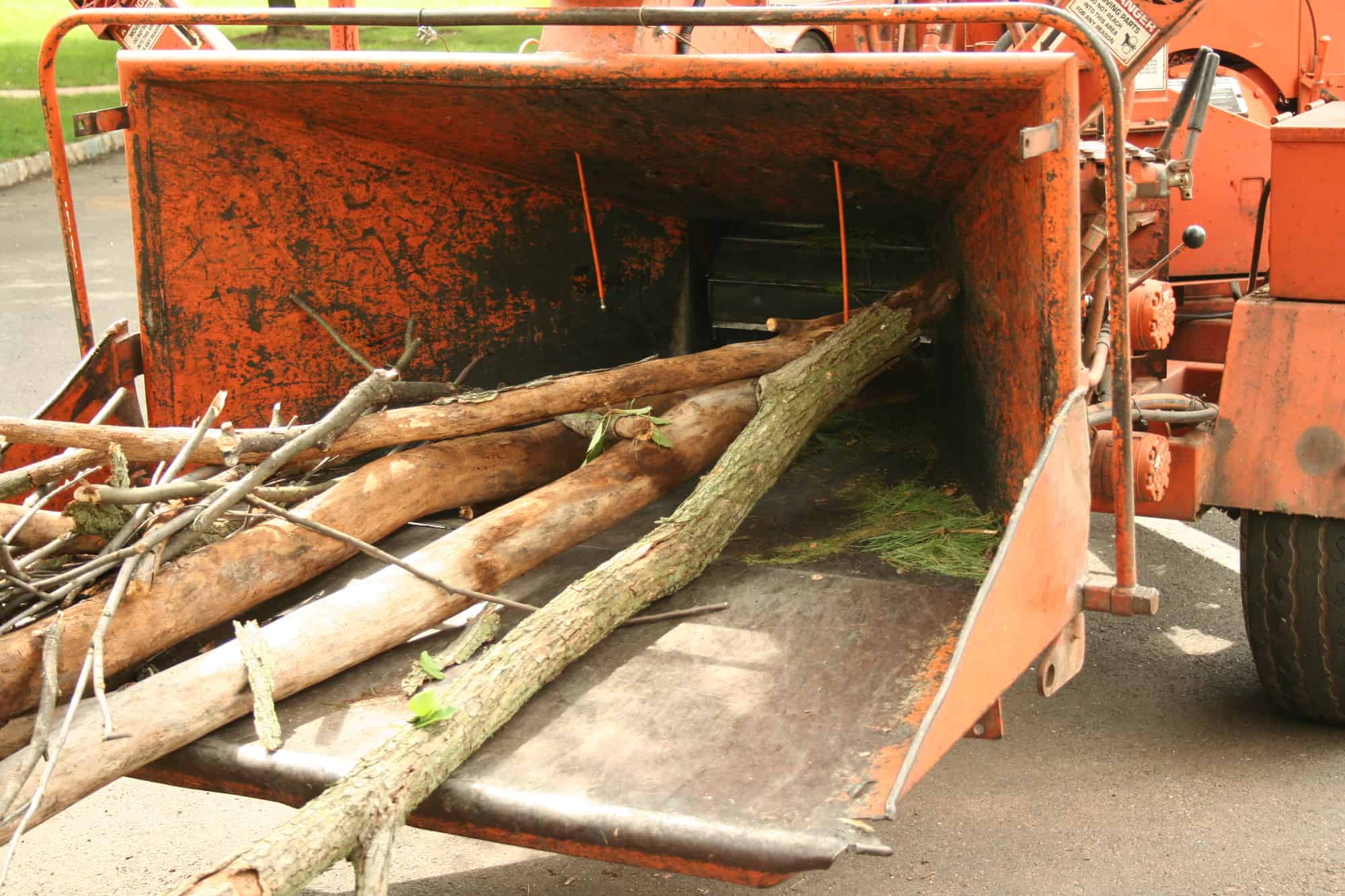When you’re about to spend money on a piece of equipment like a wood chipper, it’s natural to make sure all bases are covered in terms of documentation. A title, for example, is one of the most important legal documents establishing your ownership of a vehicle. Do you need it for a wood chipper?
You don’t need a title to own a wood chipper in many states across the US. Some of the states consider a wood chipper as farm equipment, with a bill of sale typically enough to prove ownership. To confirm if you need a title for a wood chipper in your state, check your local DMV website.
The rest of this article will look closer at why wood chippers usually don’t need titles. Watch out for safety tips to keep in mind when operating your new wood chipper.
What Is a Title?
A vehicle title is a piece of document that proves ownership of the machine. Without it, it’s difficult to legally lay claim to the vehicle. The information in this document will vary from one state to another and will also come down to the type of vehicle you’ve purchased.
A title will typically cover the following:
- The vehicle color
- Your name (or the name(s) of the owner or owners)
- The reading on the odometer
- The date of title issue
- Make, model, year, and body type of the vehicle
- Date of issue
In some places, the title will include details like the vehicle’s weight, the number of cylinders in the engine, the license plate number, the type of fuel used in the engine, the engine number, and more.
In some states, you also have to include information about salvage or flood damage. The document will contain the signature of at least one state official in charge of revenue collection or vehicles in general.
How Do Vehicle Titles Work?
The title of the vehicle clarifies the ownership situation of a vehicle. This is important if the vehicle is stolen or you want to sell it. It also comes in handy when a car is impounded or when it is at the center of a crime that took place before or after you’ve owned it.
The dealer typically processes vehicle titles if you buy from them—just like they’d handle the registration and license plate. They’ll charge a fee for this service, though, but it saves you some time.
If you buy your vehicle from a private owner, you’ll handle the process on your own.
However, if you took out a loan to buy the vehicle, the title document or certificate will remain with the lender until you’ve squared off the payments.
Finally, if you buy a car from a private owner, you have to handle this process yourself. Even when the title is sent to you, the lender’s name will appear on the title and will remain so until you’ve settled your payments.
What Is a Wood Chipper?
A wood chipper or a tree chipper is a machine mostly used to cut tree branches, limbs, and trunks, converting them into chips. This equipment simplifies the cleanup process after some landscaping. The task of clearing the excess wood generated is less daunting if you have one of these.
When the wood is broken down into chips, trucks can take a lot more weight compared to when the wood is still in lumps and branches. So, a wood chipper reduces the number of people required on a forestry project.
Chippers are portable and are mounted on wheels for easy towing by the chip trucks that will transport the final product.
The machine gets its power from an internal consumption engine, which can range from 3-1000 horsepower depending on the scope of the work the chipper is expected to do.
Super-industrial chippers needed for large-scale projects are typically mounted onto trucks. These models generally come with a hydraulic crane.
How Does a Wood Chipper Work?
To convert wood to chips, chunks of wood are passed into a hopper using a safety collar. The wood slides down to the cutting junction (which features blades on a rotating impeller). The cut-up wood is released as chips into the dump container of the chip truck through a chute. The size of the chips will come down to the chipper’s configuration.
Is a Title Necessary for a Wood Chipper?
From the details above, you can see why most states count a wood chipper as equipment that doesn’t require a title. For example, the bulk of the things that make a vehicle are non-existent on wood chippers.
There’s no odometer to read, and there’s no VIN. The engine numbers can change many times over a chipper’s lifespan. In fact, the engines can be swapped out from time to time as the machine ages.
From the details above, you can see why most states don’t require a title for a wood chipper.
For example, the bulk of the things that make a vehicle are non-existent on wood chippers. There’s no odometer to read, and there’s no VIN. The engine numbers can change many times over a chipper’s lifespan as they can be swapped out from time to time as the machine ages.
Even when you buy a commercial chipper that comes on the back of a truck, you’ll most likely only need a title for the main truck and not the wood chipper.
However, as we’ve mentioned above briefly, there could be different requirements for different states. Checking your local DMV website is the best way to confirm if your wood chipper needs a title or not. Some states that don’t require a title for a wood chipper include Idaho, Utah, Minnesota, Tennessee, and Virginia.
If you confirm that you don’t need a title for your wood chipper, you need to find other ways to demonstrate ownership. A bill of sale is usually the preferred document. Still, you can explore other options, including getting documentation from your lawyer showing that the buyer and seller agree and cover all the other details that might lead to a dispute in the future.
Operating Your New Chipper Safely
Now that you know how to claim legal ownership of your new wood chipper, it’s time to look at some safety tips to keep in mind while operating it. Wood chippers—especially the industrial variants—are super powerful machines that can cause serious injuries when handled improperly. Here are some important factors to keep in mind:
- Avoid feeding the machine more tree debris than it is designed to handle at once. You won’t speed up the job this way, and you’ll only end up exposing yourself to the risk of the blade pushing back the excess wood at high speed, leading to potential injury.
- Remove all metal, stones, and other such solid material from the bunch of tree pieces to be chipped. These will likely ricochet in the blade chamber as well, causing injury to the operator or anyone else near enough.
- Don’t put your hands into the mouth of the chipper’s hopper. If you have to push any materials in, always use a long branch.
- You (and anyone else working with you) should wear adequate protective covering over your hands, eyes, and head. Your clothing should be free enough to allow you to work comfortably but not baggy enough to get sucked into the machine when it starts working.
Conclusion
If you’re thinking of buying a wood chipper, check your local DMV to see if you’re required to do anything other than to secure a bill of sale. You won’t need a title in most states, but it doesn’t hurt to be double sure.
The DMV website should offer all the guidance you need.
When you confirm that you don’t need a title, don’t forget to explore other ways to document your purchase to avoid disputes in the future. The bill of sale may not be enough—especially if you’re purchasing a commercial unit.

